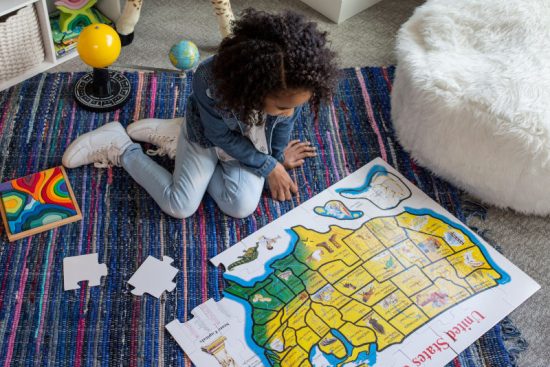
Parenting teenagers can feel like navigating a maze with ever-changing walls. As they transition from childhood to adulthood, teens face a whirlwind of emotions, challenges, and growth spurts. Parents often find themselves searching for effective strategies to guide their teens through this tumultuous period.
Parenting Tips for Teenagers
Parenting teenagers demands a nuanced understanding of their psychological and emotional changes. Effective parenting fosters a supportive environment for their growth.
Key Psychological Changes
 Teenagers experience significant psychological changes due to hormonal fluctuations and brain development. These changes impact mood, behavior, and decision-making skills. The prefrontal cortex, crucial for planning and impulse control, matures later, often leading to risk-taking behaviors.
Teenagers experience significant psychological changes due to hormonal fluctuations and brain development. These changes impact mood, behavior, and decision-making skills. The prefrontal cortex, crucial for planning and impulse control, matures later, often leading to risk-taking behaviors.
Teenagers also strive for independence, which can lead to conflicts with parental authority. They oscillate between seeking autonomy and needing guidance, causing confusion and emotional stress.
Parents can support their teens by recognizing these changes and responding with patience and empathy. Providing a balance of freedom and structure helps teenagers navigate this transitional phase effectively.
Communication Patterns of Teenagers
Teenagers develop new communication patterns influenced by peer relationships and social media. They may become more private, reluctant to share details with parents, and prefer discussing personal issues with friends.
To maintain open communication, parents should create a judgment-free space. Active listening, without immediate criticism or advice, encourages teens to express themselves. Phrasing questions as open-ended prompts can also facilitate dialogue.
Parents should respect their teenagers’ need for privacy while remaining approachable. Consistent, honest communication lays the foundation for trust and mutual respect—a cornerstone in the parent-teen relationship.
Effective Communication Strategies
Effective communication strategies can bridge the gap between parents and teenagers, fostering a deeper understanding and smoother interactions.
Establishing Open Dialogues
 Open dialogues build trust between parents and teenagers. Encourage teenagers to share their thoughts and feelings without fear of judgment. Prioritize regular conversations by setting aside time each day for talking. Address sensitive topics, such as peer pressure and mental health, directly and empathetically. Use open-ended questions like “How do you feel about this?” to promote detailed responses, enhancing the depth of the conversation. This approach helps teenagers feel heard and valued.
Open dialogues build trust between parents and teenagers. Encourage teenagers to share their thoughts and feelings without fear of judgment. Prioritize regular conversations by setting aside time each day for talking. Address sensitive topics, such as peer pressure and mental health, directly and empathetically. Use open-ended questions like “How do you feel about this?” to promote detailed responses, enhancing the depth of the conversation. This approach helps teenagers feel heard and valued.
Listening vs. Reacting
Active listening plays a crucial role in communication. Focus on understanding the teenager’s perspective before reacting. Avoid interrupting and allow them to complete their thoughts. Use reflective statements such as “I hear you’re frustrated because…” to validate their feelings. This practice minimizes defensive reactions and promotes a supportive atmosphere. Address the issue at hand calmly and thoughtfully after listening, aiding in conflict resolution and stronger relationships.
Effective communication strategies emphasize the importance of listening and engaging in open dialogues to strengthen the parent-teen relationship.
Setting Boundaries and Expectations
 Clear boundaries and expectations guide teenagers through their developmental years. Specific rules, such as curfews and study times, create a structured environment. Parents should involve teens in setting these rules, promoting a sense of responsibility and cooperation.
Clear boundaries and expectations guide teenagers through their developmental years. Specific rules, such as curfews and study times, create a structured environment. Parents should involve teens in setting these rules, promoting a sense of responsibility and cooperation.
Consistent consequences ensure rules are effective. Immediate and relevant punishments or rewards correlate directly with behavior. For example, missing curfew results in reduced privileges, while adhering to it could earn additional freedom.
Open communication about expectations avoids misunderstandings. Parents should explain the reasons behind rules, fostering mutual respect. Teens are more likely to follow guidelines when they understand the rationale.
Flexibility within boundaries accommodates individual growth. Adjust rules to reflect maturity and changing circumstances. For example, older teens might negotiate later curfews as they demonstrate responsibility.
Setting achievable goals encourages motivation. Break down large tasks into smaller, manageable steps. For instance, consistent daily study times can lead to better academic performance.
Monitoring their activities without micromanaging builds trust. Parents should know their teen’s friends, online habits, and extracurricular activities.
Managing Conflict and Emotions
Navigating teenage years is no easy feat, but with patience and understanding, parents can foster a positive environment. It’s essential to approach conflicts with empathy and keep lines of communication open. Encouraging teenagers to express their emotions and actively listening can significantly reduce tensions. By maintaining a supportive and consistent presence, parents can help their teenagers build resilience and emotional intelligence. Ultimately, these efforts contribute to a stronger parent-teen relationship and a smoother transition into adulthood.




